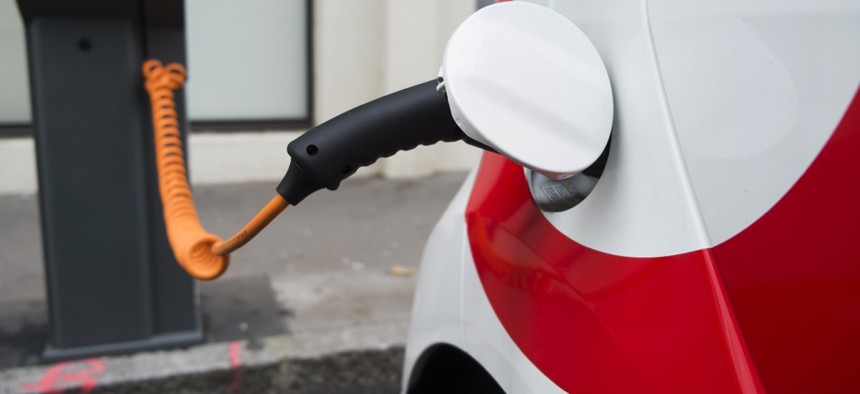Indianapolis’ ‘Freedom Fleet’ of Electric Cars Is in Trouble

Shutterstock.com
The city may not be able to save the contract of questionable legality.
Indianapolis’ electric vehicle program may skid to a halt now that the City-County Council is suing over the $32 million rental plan.
Spearheaded by Mayor Greg Ballard—championing energy conservation and reduced emissions and dependence on foreign oil—the no-bid contract with California-based Vision Fleet struck a nerve with most council members, who felt it was negotiated illegally.
The “Freedom Fleet,” which Ballard said would save the city $8.7 million, would put mostly police and fire employees behind the wheels of 425, $7,380-a-year plug-in sedans that Vision Fleet would manage and maintain.
"When one branch of government sues another, taxpayers are harmed," Mayor’s Office spokeswoman Jen Pittman told The Indianapolis Star. "We believe we have a legal contract and intend to continue fleet operations without interruption."
Some council members were open to salvaging the program, but most agreed the contract should have been bid because it was a purchasing agreement and not a services contract. The city was not obligated to buy the cars after seven years, Pittman told IndyStar.
Instead of being privately negotiated by the mayor, protocol dictates the contract be handled by the Office of Finance and Management and approved by the Board of Public Works. And the borrowing of money from the city’s storm drain fund to pay for the fleet was never appropriately approved by the Council.
Council members also questioned the usefulness of the cars to police, though the city held they wouldn’t be given to patrol officers in need of traditional, pursuit vehicles. About 150 officers were expected to get Chevrolet Volts, lacking needed storage space, and 98 had them already, local Fraternal Order of Police Vice President Rick Snyder told IndyStar.
Vision Fleet questioned whether it would continue to deal with the city, requesting a five-judge panel to review the contract and the authority of the Council to make changes after the body’s Monday night decision.
"There are concerns that the Council has raised that need to be alleviated and addressed by the city, but when you are stuck in the middle as Vision Fleet is right now, just trying to provide a service, and quite honestly, carrying out a really successful program that we have the data and metrics to back up, it's very frustrating," company spokeswoman Jennifer Wagner told RTV-6.
NEXT STORY: Should the U.S. Supreme Court Provide More Protection to City Officials Making Discretionary Decisions?






